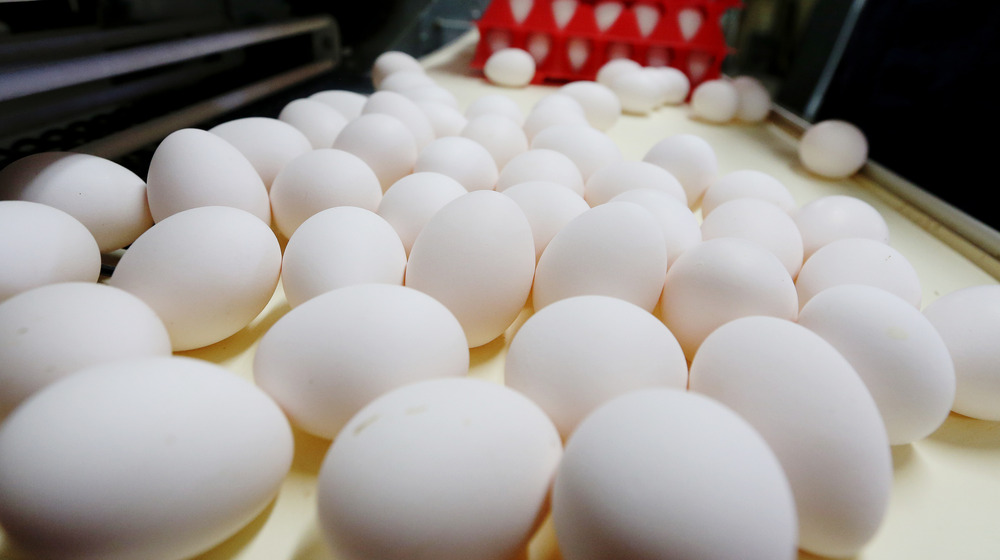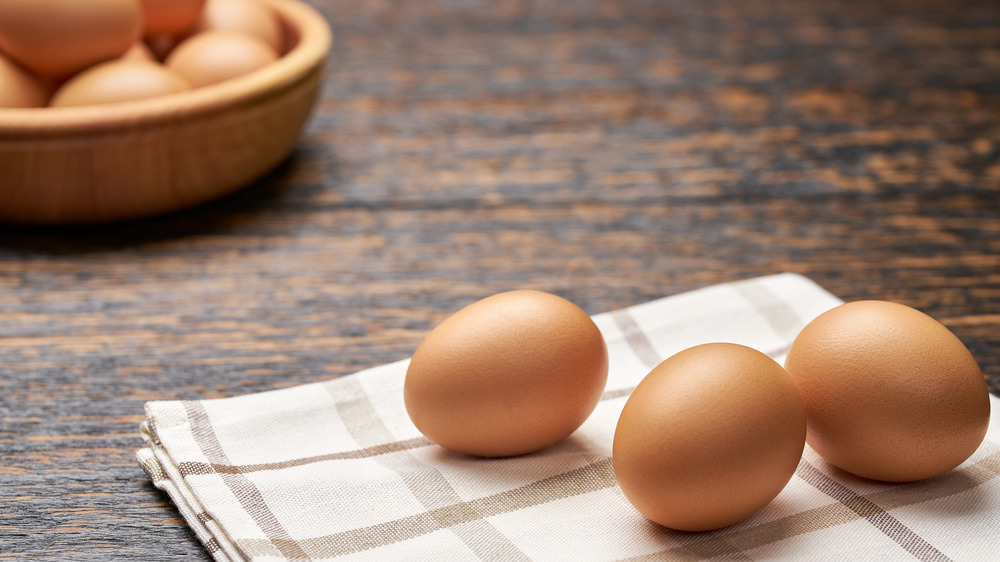The Futuristic Way We May Soon Be Disinfecting Eggs
Because they come to us in neat little cartons, we aren't likely to view eggs as disease carriers, but as the CDC warns, eggs can also attract potentially harmful bacteria while they are either in farms or when they are being transported. As a result, eggs need to be cleaned in order to keep those who handle them from getting sick.
The Spruce Eats says there are a number of ways to clean eggs, particularly if you've bought them fresh from a farmer, or have gone back to the basics and are raising egg-laying chickens yourself. One of those ways is to use a dry sponge or a loofah to dry-clean your eggs, without removing its natural antibiotic coating. But thanks to science, there may soon be an even easier way to get rid of the pesky germs that linger on the surfaces of your eggs and might even find their way onto your kitchen countertop.
New technology treats eggs to keep them germ-free
Food Ingredients First says Russian researchers have come up with cheap yet a safe way to disinfect eggshells, which is where potentially harmful bacteria are most inclined to linger. The technology makes use of an electron beam, to which eggs are exposed for over just a billionth of a second. That, apparently, is enough to protect the eggs from picking up any nasties while they are being stored. "Such a dose can disinfect containers and eggshells but does not affect the physical properties of the protein, yolk and shell, or their composition," Ural Federal University's Sergey Sokovnin said.
The beauty of the technology is that it works on any egg size and that irradiated eggs actually produce healthier chickens. "Eighty-six percent of chickens from untreated eggs show signs of chronic inflammation. In chickens from irradiated eggs, this figure reached only four percent," Sokovnin explained. Having healthier chickens also means that the poultry will need fewer antibiotics in order to remain disease-free. The scientists say the technology also works on seeds, bananas, oranges, as well as other foods with what the article referred to as "natural packaging."

